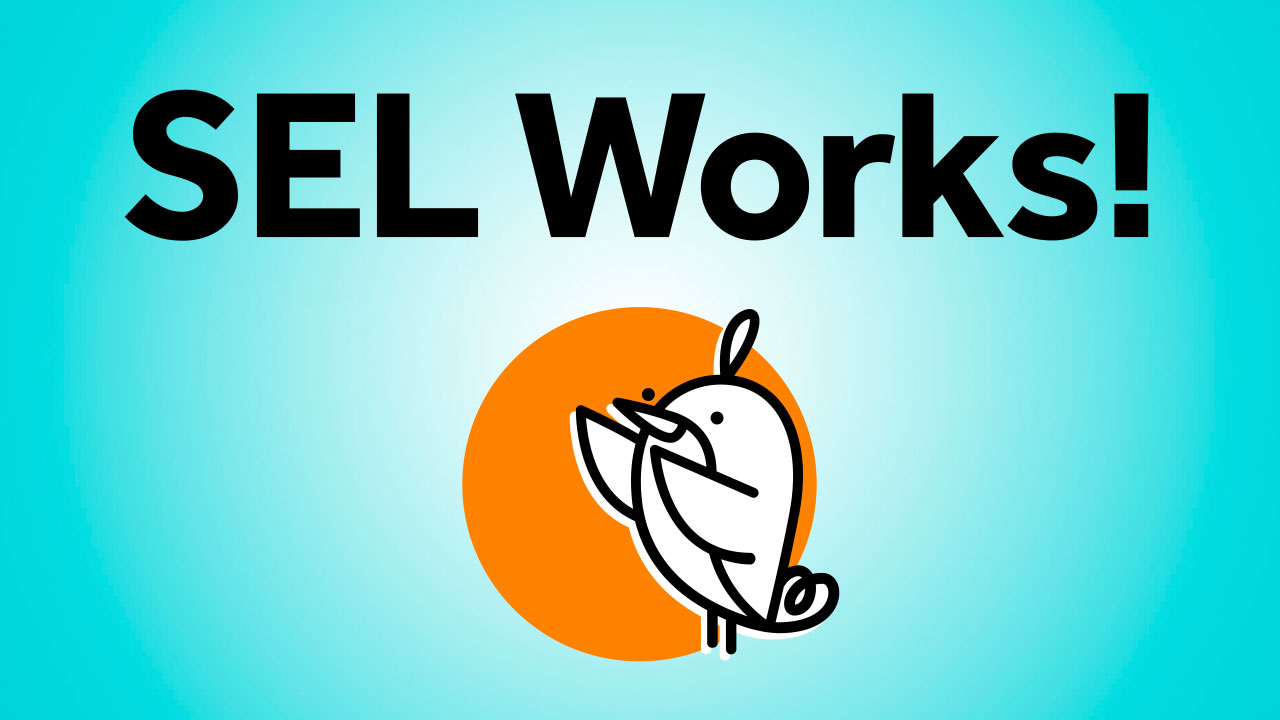April 30, 2019
SEL Works!
While I tend to be a ‘behind the scenes’ kind of guy, I felt the need to say a few words about our revised social-emotional learning (SEL) curriculum, Kindness in the Classroom®.
My background is in communication and early childhood development. Eight years ago, I would not have been able to tell you what SEL stood for—in fact, not many did at that point. I also realize that others may not understand what it is. There can be a tendency to be cautious of something that could be a fad or a trendy solution that will be cast aside when the next answer to education’s ills is developed.
What I have come to know is that SEL improves behavior and grades. In fact, if behavior does not improve, teaching time is spent on discipline, teachers leave the profession and grades go down. SEL works but it takes effort to make it happen. I have seen it be successful first-hand. School climate improves, teachers, students and parents are happier. Grades go up. It can have a tremendous effect on students and faculty that changes lives for the better.
Whatever SEL may be called over the next few years, its principles will not go away. It is not a left or right leaning idea. It is a fundamental concept based on taking personal responsibility and developing good relationship skills. The same attributes which are essential to building a civil, thriving society. More importantly, SEL skills help us develop our personal character traits such as kindness, caring and integrity.
For those thinking about implementing an SEL curriculum, each school needs to first assess whether they are ready. Is the administration and faculty ready to model good SEL behavior skills? That is our approach at The Random Acts of Kindness Foundation.
Some may be worried that putting emphasis on teaching character skills will overtake academics. What actually happens is that by infusing SEL into the school day students do better with their academic studies—on average grades rise 11 percentage points. As Nel Noddings of Stanford says, “SEL isn’t on top of everything you are teaching, it is the underpinning of everything you do in school.”
One of the “Recommendations for Action” from the Social Emotional Academic Development Commission: “Set a clear vision that broadens the definition of student success to prioritize the whole child.” An example of this is the Tacoma, WA success story. They had a 55% graduation rate. The Tacoma School District set four goals: academic excellence, partnerships with community, early learning and safety. They focused on a K-12 SEL program to bring it all together. In 2018 they achieved an 89% graduation rate. Not perfect but significantly better. SEL was the driver for this change. I think that speaks to the value of character and civic education.
In the face of rising violence in schools, teacher disillusionment resulting in a teacher burn out rate of 25 percent, suicide, depression, dropout rates that are unprecedented, flat or diminished test scores... there is no other alternative outside of incorporating SEL into the schools. We must teach both character and academic skills. Without doing so we send an ill-prepared person out of the school system into society. I have seen the success in Littleton, CO, Cleveland, OH and Atlanta, GA to name a few. Schools where grades are up, teachers are happier, students feel a renewed sense of purpose and hope. I have interviewed them, sat in their classrooms and been in their homes. SEL works.
There are a number of good SEL programs available. I recommend you to look them over and find one that fits your needs. In your search I would also encourage you to explore our Kindness in the Classroom® curriculum and see for yourself how important and valuable it is for teachers and students. It is available at no charge, and is CASEL approved and has years of field testing. Our funder wanted to make sure that cost was not a barrier for any school to have a top tier SEL program. And one other important thing—the curriculum was developed using the enduring principle of kindness. It is able to withstand cultural shifts and trends. The skills students acquire will last... a lifetime.
By Gary Dixon
President
The Random Acts of Kindness Foundation
Add Your Comment
RAMDOM ACTS OF KINDNESS IS AN INSPIRATION IN MY SCHOOL. KEEP UP THE GOOD WORK
DECEMBER 1, 2021 %>
Excellent Blog! SEL isn’t fluff but rather the foundation to cognitive development. Hands-on active research proves that a focus on SEL in a truama informed Ed culturally Responsive learning environment equals student achievement!
JULY 19, 2021 %>
totall worth it
MAY 23, 2019 %>
cute
MAY 23, 2019 %>
